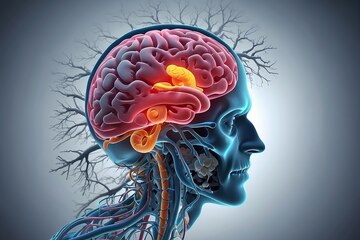Alzheimer’s Disease: Symptoms, Causes, and Treatment Options
Dementia is a broad term for a range of conditions that impact brain functions, such as memory, cognition, and behavior. Alzheimer’s disease is the most common form of dementia and primarily affects people over the age of 65, although younger individuals can also develop it. Statistically, women are slightly more affected by Alzheimer’s than men.
Symptoms of Alzheimer’s Disease
Alzheimer’s is a progressive condition, meaning its symptoms worsen gradually over time. The early stages often present as minor memory problems, such as a reduced interest in everyday activities and forgetting recent conversations or events. As the disease progresses, these issues become more pronounced.
Common Symptoms Include:
- Memory Loss: Difficulty recalling recent events or conversations.
- Confusion and Disorientation: Getting lost in familiar places.
- Difficulty Planning and Making Decisions: Trouble managing everyday tasks.
- Speech and Language Problems: Struggling with vocabulary and sentence structure.
- Mobility Challenges: Difficulty moving around independently.
- Self-Care Difficulties: Problems with tasks such as dressing and bathing.
- Psychological Symptoms: Stress, anxiety, hallucinations, delusions, and low mood.
Causes of Alzheimer’s Disease
The exact cause of Alzheimer’s is not fully understood, but it is associated with the buildup of proteins called amyloid and tau in the brain. These proteins form plaques and tangles that interfere with normal brain function, gradually leading to brain cell death and reduced communication between neurons.
Key Factors in the Development of Alzheimer’s:
- Amyloid and Tau Buildup: These substances create plaques and tangles that impair brain function.
- Brain Shrinkage: Over time, affected brain regions become smaller.
- Chemical Changes: Alzheimer’s decreases the levels of important neurotransmitters involved in brain communication.
Risk Factors for Alzheimer’s Disease
While the exact cause is unknown, certain factors are known to increase the risk of developing Alzheimer’s:
- Age: Risk increases with age, especially after 65.
- Family History: Rarely, genetics may play a role.
- Past Severe Head Injuries: May contribute to the risk.
When to Speak to a Healthcare Professional
If you are worried about memory problems or suspect dementia, it’s essential to speak with a GP. Encourage loved ones showing signs of dementia to make an appointment, and offer to accompany them if needed.
Note: Memory issues can have other causes, such as depression, stress, medications, or other health issues. A GP can perform simple tests and refer you to specialists if necessary.
Diagnosing Alzheimer’s Disease
Diagnosis involves tests to rule out other conditions, assessments of memory, and possible referrals to specialists for further testing.
Treatment for Alzheimer’s Disease
While there is currently no cure for Alzheimer’s, treatments can help manage symptoms. Consult with a healthcare professional to explore the best options for managing the disease, including:
- Medications: To help manage memory loss and other symptoms.
- Supportive Care: Ensuring your future health and social care needs are assessed through a comprehensive care plan to maximize independence and quality of life.
Living Well with Alzheimer’s Disease
There are ways to maintain a good quality of life even after a diagnosis. This may involve lifestyle adjustments, support networks, home modifications, and financial assistance.
Learn More about living well with dementia and accessing the right support services.







